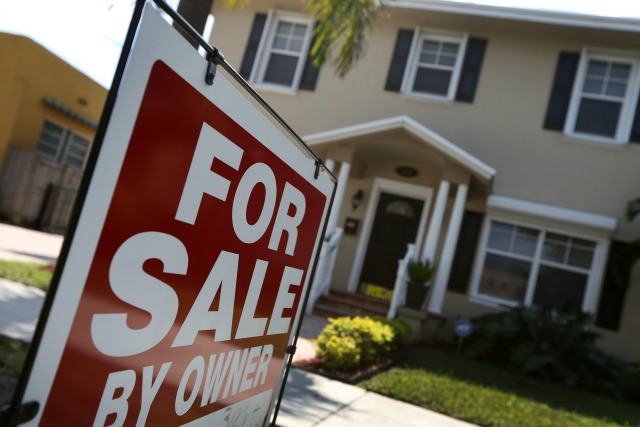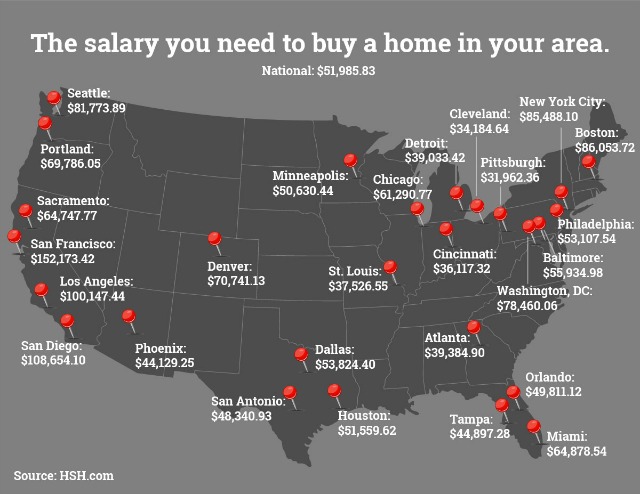The Average Chicagoan Cannot Afford To Buy A Home
By Stephen Gossett in News on Nov 16, 2016 5:32PM

Getty Images; Photo: Joe Raedle
“Affordable housing in Chicago” too often feels like a bitter oxymoron. Recently we’ve seen evidence of skyrocketing property prices in once-affordable neighborhoods on the near West Side; but sticker-shock prices home costs are far from exclusive to trendy neighborhoods, it seems. A new report from HSH Associates states Chicagoans need to earn a salary of $61,290 in order to afford the base cost of a home—which includes “principal, interest, taxes and insurance.” The median household income in Chicago is $47,831, according to the most recent census numbers.
As the map illustrates, that figure is the highest in the Midwest/Great Lakes region. But it’s actually relatively low in a sense, as it lags behind several other major metros, including Boston, New York City, Washington DC, Miami, Seattle, Los Angeles, and San Francisco. Chicago even fares better than Portland ($69,786) and Sacramento ($64,747).

HSH Associates
But that may be cold comfort for a city in which most neighborhoods (even wealthy ones) have seen income levels decrease over the last 15 years. Some signs point to an overall economic recovery in Chicago—new figures show area job totals finally overtaking pre-recession numbers—but the 60K-plus figure keeps truck with affordable-housing anxieties in Chicago. Only 11 of Chicago’s 77 community areas register a median household income higher than the $61,290 cost.
A study in May concluded that the average renter cannot afford a two-bedroom apartment in Chicago; a report by personal-finance company SmartAsset that same month found that renters need to bring in $76,000 annually in order to afford rent. Perhaps unsurprisingly, nearly half of Chicago adults spend more than they can afford on housing, and Chicagoans consider housing affordability a "serious problem" at 13 percent higher rates than the national average of respondents, according to the MacArthur Foundation.
[H/T Curbed]